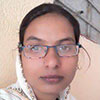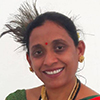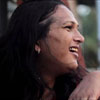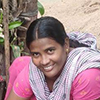Economic and Environmental Justice Fellowship
The Economic and Environmental Justice Fellowship was launched in the context of COVID-19; a public health crisis that has also debilitated communities economically and socially. Several studies have confirmed that the pandemic has a disproportionate impact on girls, women and transgender people. Livelihoods of communities dependent on natural resources have been rendered increasingly vulnerable. These communities have historically been affected by worsening economic situations compounded by ecologically unsustainable practices; the pandemic has only worsened those conditions. Women in agriculture and allied activities, daily wage earners, running petty businesses etc. have suffered serious economic losses. Transgender people, already living a life of stigma and exploitation, have been rendered far more vulnerable with fewer livelihood opportunities, and limited access to social protection and rights.
Policies and practices implemented without inculcating indigenous knowledge have continued to have an adverse effect; sometimes in the form of natural disasters which affect these marginalised communities the most. Therefore, while developing economic revival it is essential to incorporate these voices and draw on their tacit knowledge of ecologically viable alternatives.
The Fellowship Programme -
Through the fellowship programme, SAWF IN aims to support women and trans* led interventions in communities, working on building economic resilience and justice but in a manner that is also ecologically sustainable.
Economic and environmental justice are being defined for the purposes of the fellowship to cover actions and practices that enable women and trans* to claim their entitlement over economic and environmental resources. It includes reinstating practices that nurture their natural habitats, culture and livelihoods.
The fellowship provides the participants with the opportunity to have access to the necessary knowledge, resources, network and mentorship support to help them to successfully take their interventions forward.
SAWF IN seeks applications annually from individual women and trans* working independently or as part of collectives,who are working in the area of economic justice and improved environmental outcomes, to help take their actions forward. Our effort would be to give preference to applications impacting regions which are ecologically fragile and in need of supportive intervention. If you are interested to apply write to us at fellowship.sawfin@gmail.com
Our Current Areas of Operations -
Krishna District, Andhra Pradesh | Darbhanga, West Bengal | Palghar District, Maharashtra | Joynagar district, Sundarbans, West Bengal |
Panna Forest Areas, Sagar District, Madhya Pradesh | Kangra District, Himachal Pradesh
In 2021, six fellowships were awarded as part of this fellowship:












